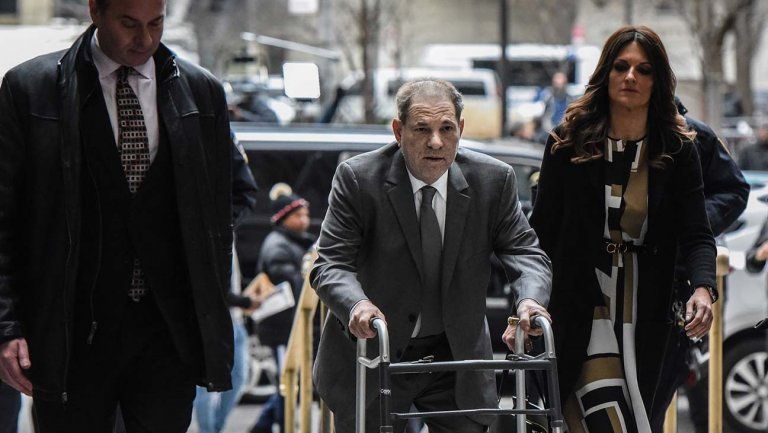
Lawyers in the Harvey Weinstein Case Are Asking Prospective Jurors if They’ve Ever Been Sexually Abused
January 7, 2020Want the best of VICE News straight to your inbox? Sign up here.
Eleven pages into the questionnaire handed to potential jurors on Day 2 of Harvey Weinstein’s sexual assault trial came a question that cut to the heart of the case: “Have you, a family member, or a close friend ever been the victim of physical or sexual abuse, either as a child or adult?”
The question, while certainly sensitive, isn’t uncommon in sexual and domestic violence cases. In fact, attorneys often ask would-be jurors about their personal experience with the crime being tried. They’re trying to discern just how closely someone’s life mirrors the central facts of the case and if they could objectively evaluate the strength of charges — which, in Weinstein’s case, could put him behind bars for life.
“If the case was a burglary case, they can ask people if they ever victimized in a burglary,” said Jane Anderson, an attorney adviser at the nonprofit Aequitas, which aims to improve prosecutors’ approach to gender-based violence cases. “The idea being that if you felt a personal connection to your victimization, that you might take it out on this defendant because you were victimized and it’s just hitting too close to home.”
Lawyers representing Weinstein and the Manhattan district attorney’s office are expecting to comb through hundreds of potential jurors over the next two weeks, as they search for 12 jurors — and six alternates — who will determine whether Weinstein is guilty of rape, sexual assault, and predatory sexual assault.
That’s a monumental task; Weinstein’s infamy as both a Hollywood power broker and a launching pad for the #MeToo movement means that many potential jurors have already heard about the case — and formed their own conclusions about his guilt or innocence.
A section of the 16-page questionnaire touches on that concern, with questions like, “If you have seen, read, or heard anything about the case, does that information affect your ability to be a fair and impartial juror?”
Other questions seem aimed at figuring out if someone’s experiences may make them more or less sympathetic to the workplace dynamics that Weinstein and his alleged victims dealt with. For example, one asks, “Have you, a family member, or a close friend, ever worked in the entertainment industry?”
After the questionnaire and answering questions from Judge James Burke, some potential jurors in the Weinstein case will sit for further questioning under voir dire. Prosecutors, the defense team, and the judge can all call for a candidate’s dismissal, in the hopes of ensuring the most impartial jury, though there’s a limit to just how many people attorneys can “challenge.”
READ: Harvey Weinstein is finally going on trial. Here's everything you need to know.
Questions about people’s history with sexual violence are often particularly more knotty, in part because sexual violence is so ubitiquous: In the United States, 52.2 million women and 27.6 million men have experienced it in their life, according to the most recent CDC National Intimate Partner and Sexual Violence Survey, in 2015. And people can and do get dismissed from sexual abuse cases after revealing that they’ve been assaulted.
When attorneys ask jurors about their experiences with sexual violence, Anderson said, they need to approach any dismissal with nuance.
“If you’ve got judges and attorneys that are basically saying, ‘Oh you’re a victim, you’re unqualified,’ that’s where you’re gonna get in trouble,” Anderson said.
Broad dismisals like that raise questions of discrimination against sexual assault survivors, and, in particular, women, given that they’re far more likely to report sexual violence. It’s illegal to kick someone off of a jury on the basis of gender.
That’s why, Anderson said, lawyers need to ask a follow-up question: “‘How does the fact that you were victimized affect your ability to be a fair and impartial juror on this case?’”
Cover image: Harvey Weinstein smiles as he arrives at court after a lunch break on the first day of jury selection for his sexual assault trial, Tuesday, Jan. 7, 2020, in New York. (AP Photo/Mary Altaffer)


